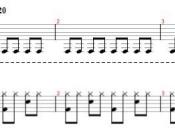Effects of Music on Adolescent Behavior Music is universal. In every culture, we express ourselves, particularly our thoughts and feelings, through music. It surrounds people and its broad usage closely relates to people's daily lives. Music is especially important in the lives of adolescents. It is influential to their identity and helps them define important social and subcultural boundaries. Music has the power to make someone aggressive, relax, and create a feeling of happiness or sadness. Yet, it is also believed that the effect of the music is determined by the person's state of mind.
Music is central to youth culture. According to Kathleen O'Toole, "music alters and intensifies their moods, furnishes much of their slang, dominates their conversations, and provides the ambiance at their social gatherings" (par. #5). Musical preferences are strongly related to those of their peers. American youth listen to music about four to five hours daily, on average.
Adolescence is known as the teenage years usually starting at about the age of thirteen, however, child development experts say the beginning of adolescence starts when he or she has formed a passion for music. This time is usually around the age of ten. Psychoanalysts, mass media, and parenting books all depict adolescence rebellion against their parents and crisis. Professor Donald Roberts of Stanford and Professor Peter Christenson of Lewis and Clark College say, "For most kids, adolescence is a period for normal, gradual development in considerable harmony with parental values and cultural expectations" (O'Toole par. #18, 19).
In the past two decades, music has become more and more explicit. In the past, themes that referred to drugs, violence, and sex were hidden. ("Youth" par. #3).
Country music is a mellow type of music about life. Its songs have meanings that are deep and depressing (Stack Gundlach...


